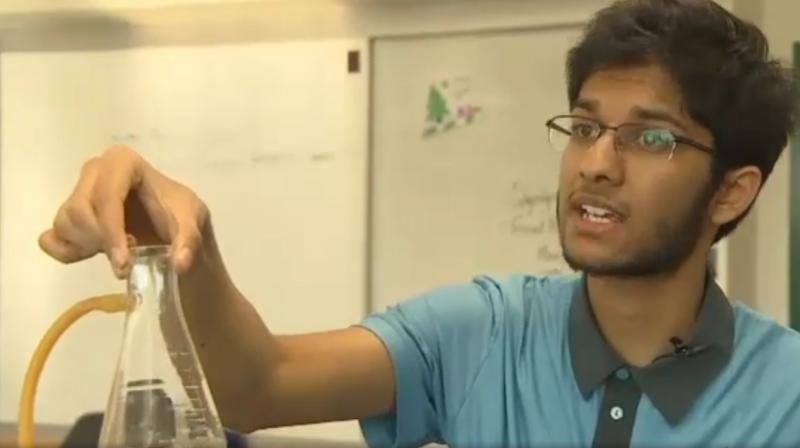
An Indo-American Student Figures out an Economical Way for Making Saltwater Drinkable
The crisis of water is one of the most somber setbacks; the current society is facing today. However, soon, scientists will be able to address the concerns of the shortage of drinking water, thanks to the Indo-American youngster Chaitanya Karamchedu. The mission, which was started as an experimental project, now has emerged as a path-breaking manner for transferring saltwater into drinkable water. With the new idea, soon people will be capable of turning the undrinkable salt water of oceans and seas into safe drinking water.
The American-Indian youngster, Chaitanya Karamchedu from Portland, Oregon, has developed a convenient, economical, and easily reachable manner to generate clean drinkable water from the salt water of oceans and seas. Chaitanya Karamchedu is currently a student at Jesuit High School/Portland State University. The project was begun a science experiment turned into a revolutionary idea of addressing issues of drinking water deficiency.
The brain behind the development used hydrogel-based desalination system alongside the hydrophilic factors of saponified starch grafted polyacrylamide for harvesting fresh water from saltwater. This method of water management is so inexpensive that it can be used everywhere, without requiring any special conditions. The system is expected to be the most economical and ideal solution to overcome water crisis across the globe. For his ground-breaking innovation, Chaitanya Karamchedu was awarded $10,000 from Intel’s International Science Fair and $2,000 from Regeneron Science Talent Search. This cash prizes will press Chaitanya Karamchedu forward to pursue the perfect aftermath of his research.
Desalination is one of the ideal methods for purifying water nowadays. However, due to its unavailability, most remote areas are unable to draw on this approach for water purification. However, surprisingly this idea of Desalination paved the path for Karamchedu figure out an ideal and convenient way to his school science lab. The application of this water purification process does not entail any electrical and thermal energy. Moreover, its filtered water also has a comparable conductivity of 306.32 µS/cm which is equivalent to the conductivity of clean water at 200 µS/cm.
This significant scientific breakthrough of Karamchedu is expected to help people getting safe, refined, and inexpensive drinkable water easily. It will be helpful especially to those who lack access to distilled and cleaned water. With its incredibly cheap and accessible factors, the system is expected to hit availability in the commercial market soon.


